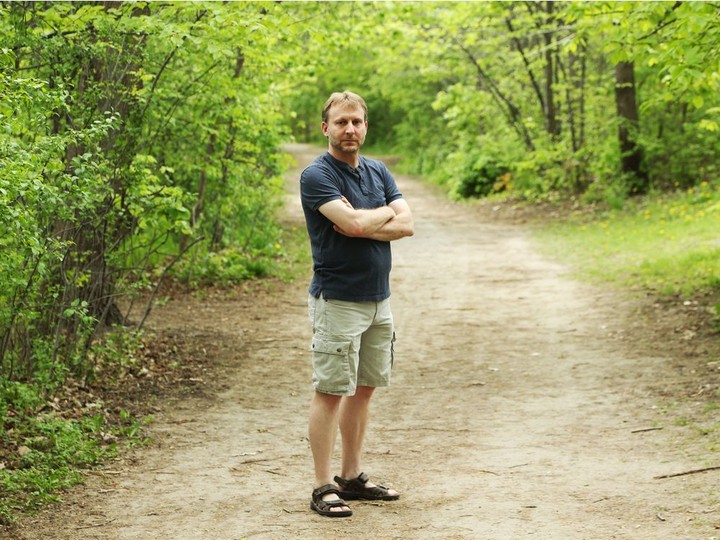researcher probes the flip side of loneliness
people experiencing aloneliness can feel moody, grumpy or sad if they are pressed into being around others day after day.
we apologize, but this video has failed to load.
try refreshing your browser, or
tap here to see other videos from our team.
tap here to see other videos from our team.
a lot of people have felt lonely during the pandemic. but carleton university researcher robert coplan and his colleagues have been exploring the other side of loneliness — the need to be alone.the word to describe this condition, “aloneliness,” was coined only about three years ago. it means the unmet need for solitude. people experiencing aloneliness can feel moody, grumpy or sad if they are pressed into being around others day after day.“solitude has a bad reputation,” said coplan. one u.s. experiment in which undergraduate students were asked to spend 15 minutes in an empty room by themselves thinking found that most students said they would prefer to receive a painful electric shock.people who are alone are at risk of loneliness and depression. loneliness can be similar to physical pain, he said. on the other hand, people who are together with no respite experience the same sorts of stress and negative moods as those who are lonely.coplan, a developmental psychologist, is an expert on shy and socially withdrawn children. but it’s difficult to get data on children when they’re not in school, so coplan and his fellow researchers have shifted gears to looking at the perceptions and benefits of solitude.“there has never been a more important reason to study solitude,” he said.as it turns out, the busy couple who have been juggling working from home and shepherding their children through online classes need time alone. in fact, everyone does, said coplan.those who have been working from home might be missing those small pockets of solitude in a regular workday — walking to work, for example, or leaving the office for a solitary coffee break. people seek and need solitude to do things they enjoy without having to respond to the demands of someone else, he said.the key is control. solitude is a negative experience for a child who is ostracized or a prisoner forced into solitary confinement. but for someone who can control the experience of solitude, it has a positive effect.“there is something good about being able to unshackle yourself from the constraints. you can do what you want to do,” said coplan who is one of the editors of the recently released second edition of the handbook of solitude, an academic volume with chapters on global research ranging from a study of children who play alone to one about single people who have never married.everyone needs their own amount and type of solitude.
advertisement

personality is one factor. people are never pure introverts or extroverts and tend to have components of each in their personalities, said coplan.“it’s like the goldilocks story. you have to find just the right amount of solitude. there’s no prescription. it’s quite a complex formula.”there is a long history of appreciating solitude as an opportunity for introspection and restoration. american author henry david thoreau, who spent more than two years living in a cabin on walden pond, wrote that he found it “wholesome” to be alone most of the time.“to be in company, even with the best, is soon wearisome and dissipating,” he wrote. “i love to be alone. i never found the companion that was so companionable as solitude.”but that’s not everyone.there are still many questions to be answered, said coplan. researchers have yet to figure out the “active ingredient” of solitude.for some, beneficial solitude means being alone without other people. for others, it means spending uninterrupted time in a noisy coffee shop. for one person, it could mean enjoying nature. for another, it’s being in a room with a book and the door closed. technology makes it possible to be physically alone, but be virtually with other people.“if someone says, ‘this is the way it works,’ they’re wrong,” said coplan. “it doesn’t work the same for everyone.”solitude is also different from “rumination,” in which people mentally review things that have been said or done in the past, or worry about what might happen in the future. rumination can cause anxiety, he said.before the pandemic began, coplan embarked on a study of how parents perceived the costs and benefits of solitude for children between the ages of three and 18. now, he will be looking at whether perceptions have changed during the pandemic.the pandemic will have a long-term mental health effect, he said.“stress is everywhere. people who were comfortable swimming are being pulled under.”five things about seeking solitude1. beneficial solitude means different things to different people. the key is that it must be something you enjoy that motivates you, said coplan. “no one can tell you what’s right for you.”2. try to find “micro” moments of solitude in a day. spend 10 minutes on the back porch or go for a walk around the block. coplan suggests keeping a diary for a week to track time spent alone and the moods these moments produce.3. don’t be afraid to let other people know that you need solitude. “it doesn’t reflect on your relationships. it’s a normative need,” he said.4. you don’t need to be physically alone to enjoy solitude. some people enjoy solitude in a place where other people are present, such as a park or another public place. solitude may simply be freedom from other people’s expectations.5. solitude may include access to technology, said coplan. some people find it necessary to leave their devices at home. others consider technology necessary to enjoy solitude because they can listen to music or scroll through news websites. however, he advises against looking at other people’s manicured social media posts. comparing your own reality to other people’s supposedly perfect lives tends to provoke anxiety.
 4 minute read
4 minute read





